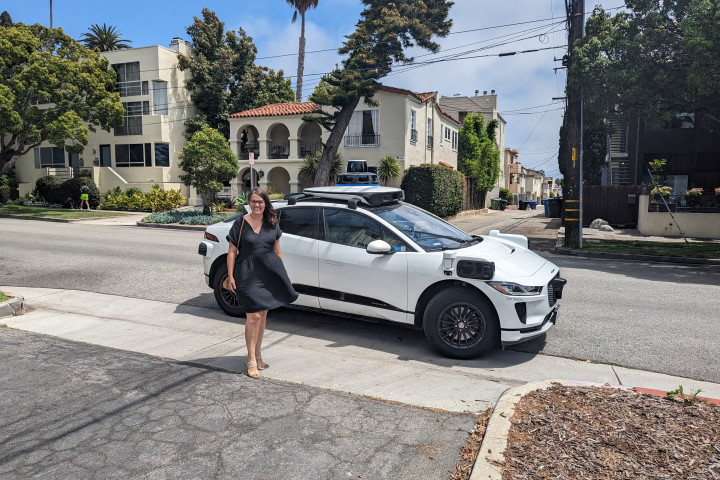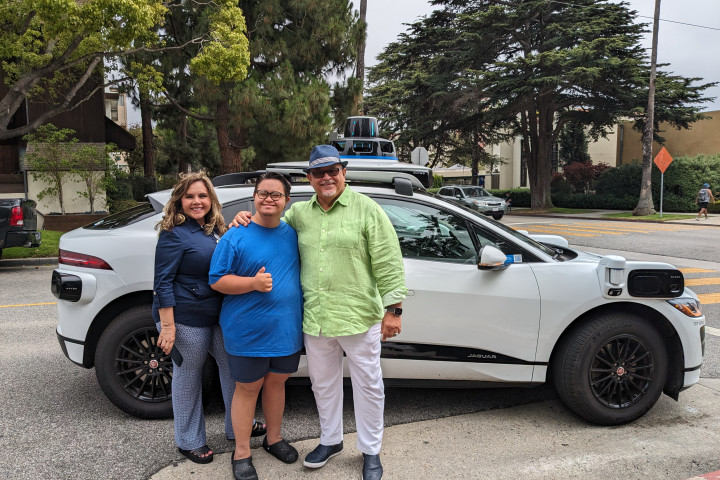Guide Dogs Get R&R at Blinded Veterans Association’s Bow Wow Lounge
September 22, 2023
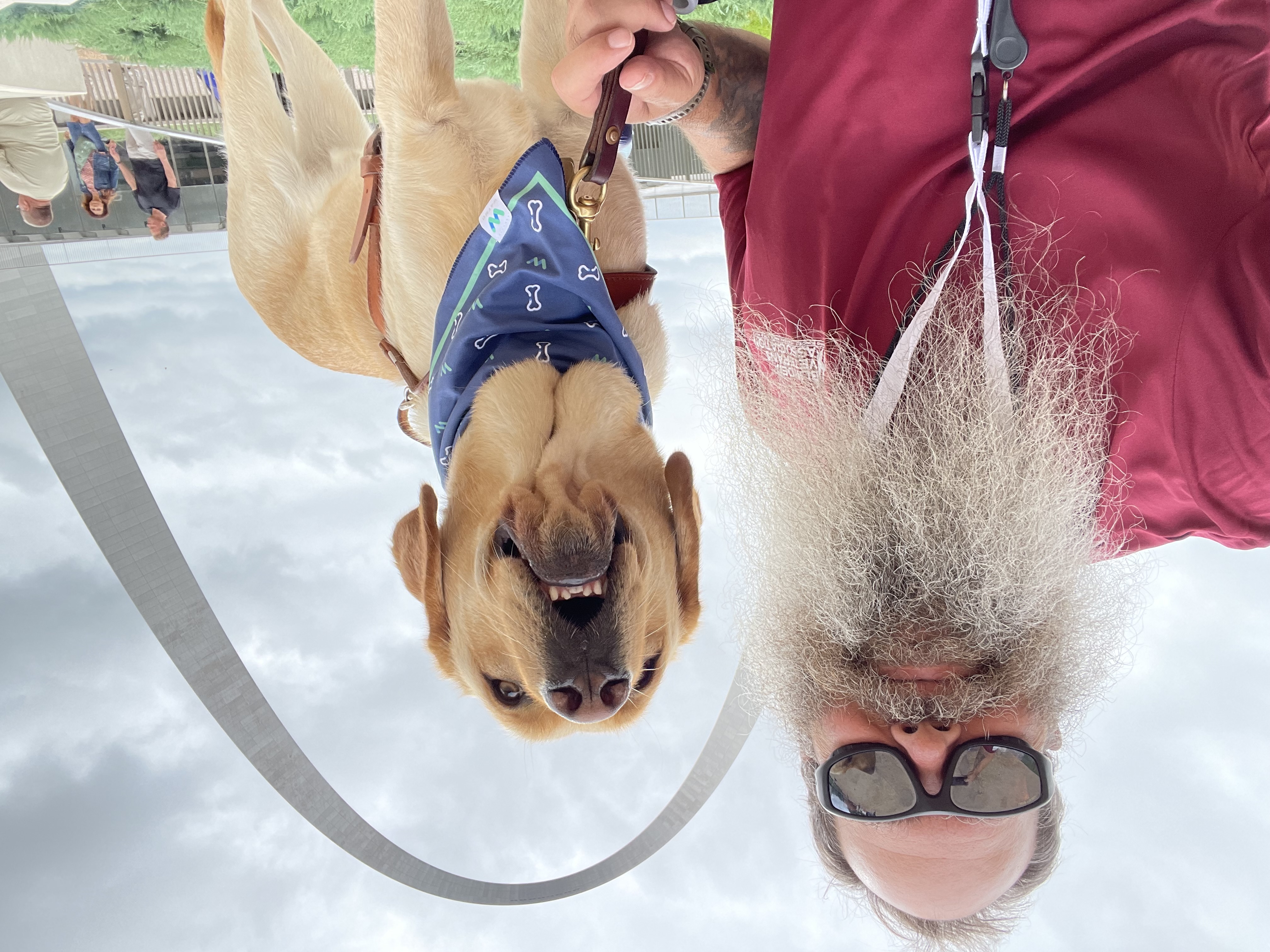
Robert Sanchas, President of the Rhode Island & Southeastern Massachusetts Regional BVA Group, with his guide dog, Skunk.
At a convention center in St. Louis, guide and service dogs trotted around with doggy conference bags bearing their names, played, enjoyed treats and relaxed.
It was the 78th National Convention of the Blinded Veterans Association (BVA), an organization chartered by Congress and led by veterans who are visually impaired to advocate for and support veterans with sight loss and their families.
The dogs – along with the veterans they help navigate the world – were enjoying the BVA convention’s first-ever Bow Wow Lounge, a rest and refreshment area for service dogs.
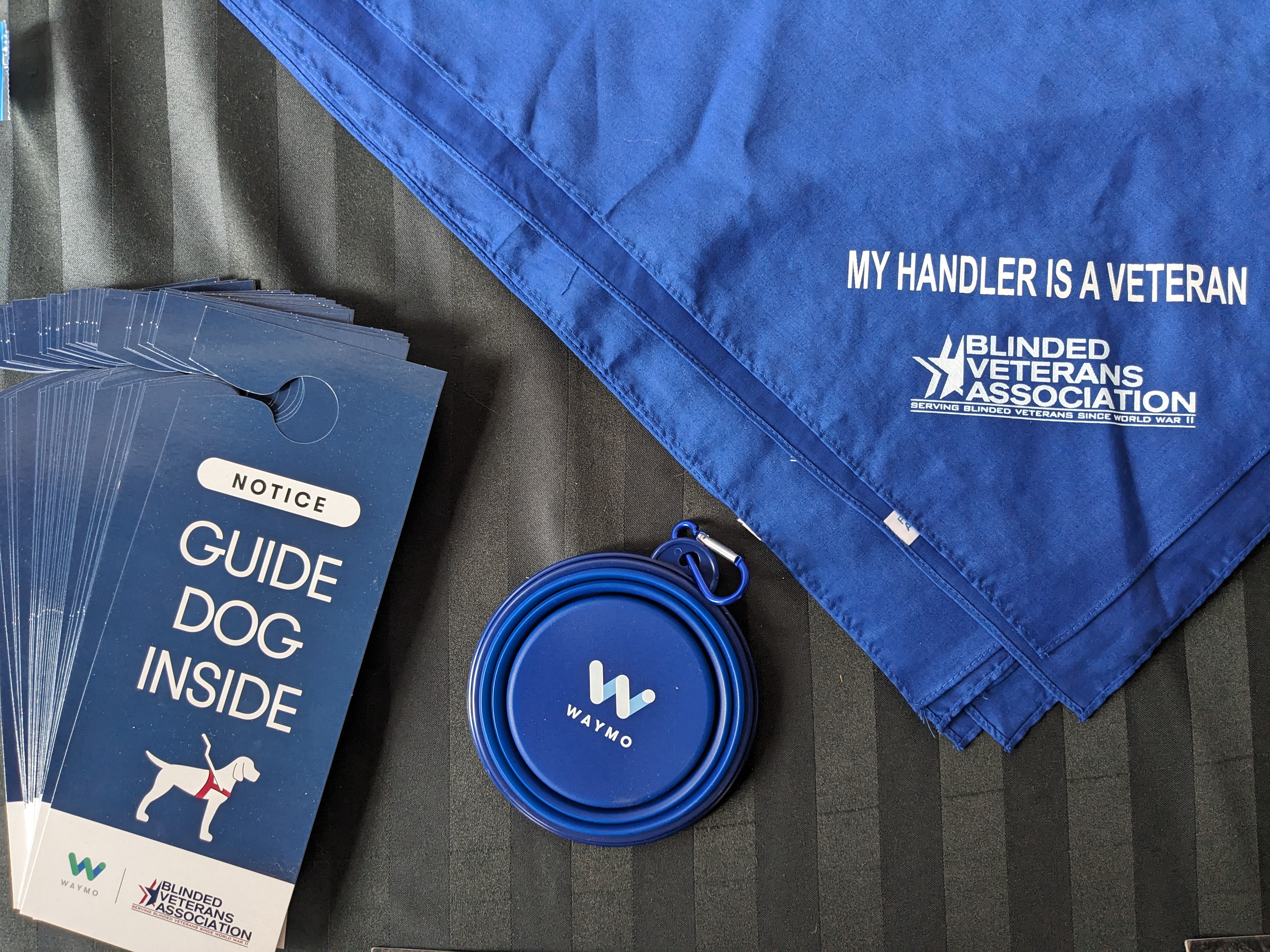
Brenda Arreola was there representing the lounge’s sponsor, Waymo, an autonomous driving technology company that partners with BVA and other disability advocacy groups through its Waymo Accessibility Network, which is proactively exploring ways autonomous driving technology could bring mobility and independence for people who are blind or have a disability.
Waymo has supported the BVA’s annual convention for several years, surveyed its membership about mobility preferences, connected with members in multiple states, and collaborated with BVA on federal and state policy efforts.
Brenda heard BVA participants say the Bow Wow Lounge was game-changing for their conference experience. One conference-goer shared that she used to have to take her dog back to her hotel room between events to decompress.
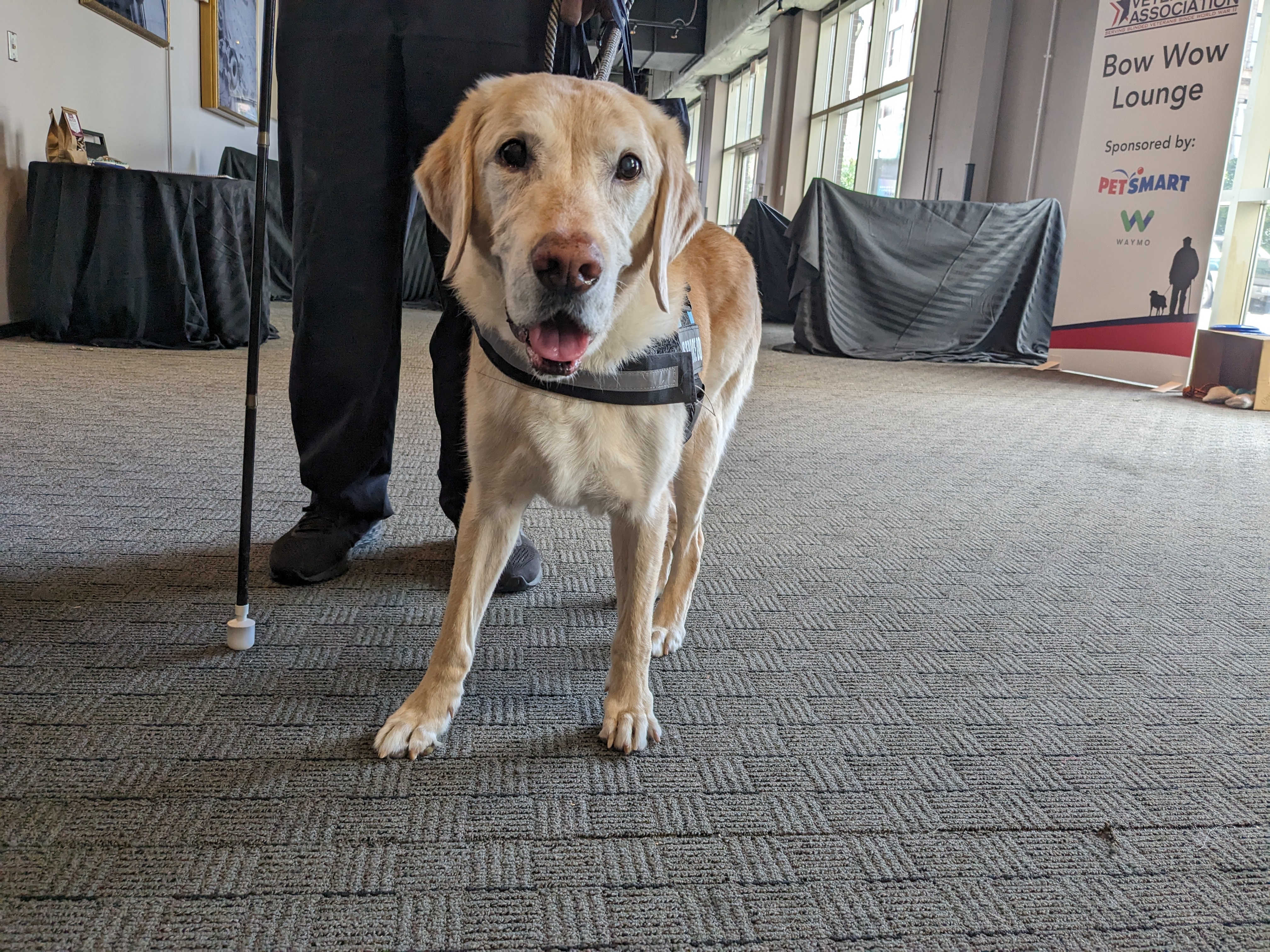
Brenda served 17 years in the Marine Corps before starting her career in technology with Waymo, where she works as an administrative business partner. She said her years of service helped her connect with the veterans at the BVA convention.
“There's a connection there. We’re bonded. We didn't serve in the same branch, we didn't serve at the same time, but there is a commonality there,” Brenda said.
At the BVA convention, Brenda said she was thrilled to meet a pair of friends who said they often traveled together, having adventures from kayaking to white water rafting and skiing.
“I just met so many amazing people and I got more out of it than I anticipated,” Brenda said.
Before the conference, Brenda had never met a veteran with sight loss, and she was proud of how BVA supports, empowers and strengthens veterans who are blind or have low vision.
“They created their own community and they do a lot of advocacy work for the veterans, making sure they get all their resources,” Brenda emphasized. “Even going there and seeing this group of people that were living their lives unapologetically, it was incredible.”
Tim Hornik, Chief of Staff for BVA, said the organization’s mission supporting blinded veterans in the U.S. is crucial, especially now.
“As the population of veterans continues to decline, more and more people fail to understand the unique experiences, goals, and needs of our fellow blind and low vision veterans,” Hornik explained.
Hornik said BVA’s partnership with Waymo is part of its record of exploring and supporting assistive technologies that hold promise for blinded veterans.
“This technology has the potential to give blind veterans greater independence, reduce their isolation, and improve their mental and physical health,” he said.
This technology has the potential to give blind veterans greater independence, reduce their isolation, and improve their mental and physical health.
He said Waymo could also help blinded veterans connect with their communities and participate in activities they may not have been able to take part in before.
“By providing them with a safe and reliable way to get around, this will reduce the isolation and social exclusion that many blind veterans experience,” Hornik said.
Brenda said the veterans she talked with at the convention were enthusiastic about the promise of autonomous driving technology.
“I did get the sense that they’re excited, and I think the big thing is safety,” she said.
Waymo is designed to drive safely and carefully, obey road rules like speed limits, stay constantly vigilant, and make decisions to maximize safety for passengers and all road users. The technology also integrates key accessibility features, such as giving riders multi-sensory and audio cues, and an accessible mobile app.
Brenda said veterans also see benefits in Waymo’s autonomous driving technology beyond the built-in safety, operability, and predictability: independence.
“It’s a sense of being able to get around and not having to depend on other people as well,” Brenda said.
At Waymo, Brenda has led Veterans@Waymo, an employee resource group, for several years.
“We speak our own language and we have our shared experiences,” Brenda shared. “A lot of times, when you leave the military or you leave the service, it's important to create that community that reminds you that you’re not alone.”
Brenda said she finds her work at Waymo so meaningful because she sees firsthand how it could help veterans like her and improve road safety for riders, pedestrians, veterans and senior citizens.
Hornik emphasized that technology has long been life-changing for people who are blind or have low vision, from white canes in the past to present-day AI, optical character recognition (OCR) tools, virtual reality (VR) and mixed reality (MR) headsets.
He added, “Now with Waymo, we have the ability to be able to move independently to run errands, to attend appointments in ways that are safer and more reliable than other services.”
Sign Up
Join us in the most important conversations about how autonomous driving technology may shape the future of safety, mobility, community, and society.

